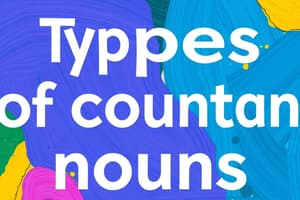Podcast
Questions and Answers
Which of the following is a correct definition of a noun?
Which of the following is a correct definition of a noun?
- Words that describe qualities or characteristics of people, places, or things
- Words that refer only to physical objects like people, places, or things
- Words that refer to actions or behaviors of individuals or groups
- Words that refer to people, places, or things, including abstract concepts like events and ideas (correct)
What is the origin of the word 'noun'?
What is the origin of the word 'noun'?
- Derived from the Greek term noma, meaning 'word'
- Derived from the Old English term name
- Derived from the French term nom, meaning 'name'
- Derived from the Latin term nomen, meaning 'name' (correct)
Which of the following is an example of a noun?
Which of the following is an example of a noun?
- Jumping high
- Running fast
- Beautiful sunset
- Race car (correct)
What does the word 'noun' mean in modern French?
What does the word 'noun' mean in modern French?
How many distinct types of nouns are generally accepted?
How many distinct types of nouns are generally accepted?
Which type of noun represents intangible concepts or ideas?
Which type of noun represents intangible concepts or ideas?
What type of noun denotes groups or assemblies of people, places, or things?
What type of noun denotes groups or assemblies of people, places, or things?
Which type of noun combines two or more words and can be proper or common?
Which type of noun combines two or more words and can be proper or common?
What type of noun is tangible and perceived through the senses?
What type of noun is tangible and perceived through the senses?
In sentences, nouns function as subjects and objects, working with verbs to convey actions and ideas. Which of the following sentences contains a noun functioning as an object?
In sentences, nouns function as subjects and objects, working with verbs to convey actions and ideas. Which of the following sentences contains a noun functioning as an object?
Flashcards are hidden until you start studying
Study Notes
Types of Nouns and Their Functions
- Nouns can be singular or plural, common or proper, compound, concrete, abstract, or collective.
- Singular nouns refer to one person, place, or thing, while plural nouns refer to multiple.
- Common nouns are general, not capitalized, and refer to something universal, while proper nouns are specific, always capitalized, and identify particular people, places, or things.
- Compound nouns combine two or more words and can be proper or common.
- Concrete nouns are tangible and perceived through the senses, while abstract nouns represent intangible concepts or ideas.
- Collective nouns denote groups or assemblies of people, places, or things.
- Nouns are essential for forming sentences and creating meaning in the English language.
- Nouns function as subjects and objects in sentences, working with verbs to convey actions and ideas.
- Examples of sentences with nouns as subjects include "Alvin studied for his test after going swimming" and "Books are a wonderful comfort to read when you are alone."
- Examples of sentences with nouns as objects include "My mother's orchid needs direct sunlight to survive" and "Judy Garland sang beautifully for her audiences."
- Proper nouns are always capitalized in writing to indicate specific people, places, or things, while common nouns are not.
- Compound nouns combine words to function as a single noun, and they can be proper or common.
Studying That Suits You
Use AI to generate personalized quizzes and flashcards to suit your learning preferences.




